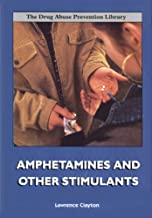Amphetamine Dependence
Amphetamine dependence refers to a state of psychological dependence on a drug in the amphetamine class. In individuals with substance use disorder, psychotherapy is currently the best treatment option as no pharmacological treatment has been approved.
Cluster Number:
Wiki Number: W1010
Diagnosis: Amphetamine Dependence
US Patients:
World Patients: 2013-3788 Deaths
Sex Ratio:
Age Onset:
Brain Area: Reduces dopamine in brain
Symptoms: Euphoria, intense thought, wants to move
Progression:
Causes:
Medications: Psychostimulants may substitute
Therapies:
Youtube Video: Amphetamines
Amazon or Library Book: Amphetamines and Other Stimulants
Amazon or Library Book: Ice Age . . Crystal Meth Addiction
Click the book to link or order from Amazon.
Click the book to link or order from Amazon.


